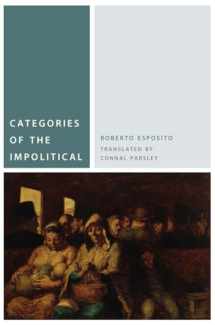
Categories of the Impolitical (Commonalities)
Book details
Summary
Description
The notion of the “impolitical” developed in this volume draws its meaning from the exhaustion of modernity’s political categories, which have become incapable of giving voice to any genuinely radical perspective. The impolitical is not the opposite of the political but rather its outer limit: the border from which we might glimpse a trajectory away from all forms of political theology and the depoliticizing tendencies of a completed modernity.
The book’s reconstruction of the impolitical lineage―which is anything but uniform―begins with the extreme conclusions reached by Carl Schmitt and Romano Guardini in their reflections on the political and then moves through a series of encounters between several great twentieth-century texts: from Hannah Arendt’s On Revolution to Hermann Broch’s The Death of Virgil, to Elias Canetti’s Crowds and Power; from Simone Weil’s The Need for Roots to Georges Bataille’s Sovereignty to Ernst Junger’s An der Zeitmauer.
The trail forged by this analysis offers a defiant counterpoint to the modern political lexicon, but at the same time a contribution to our understanding of its categories.


We would LOVE it if you could help us and other readers by reviewing the book
Book review



